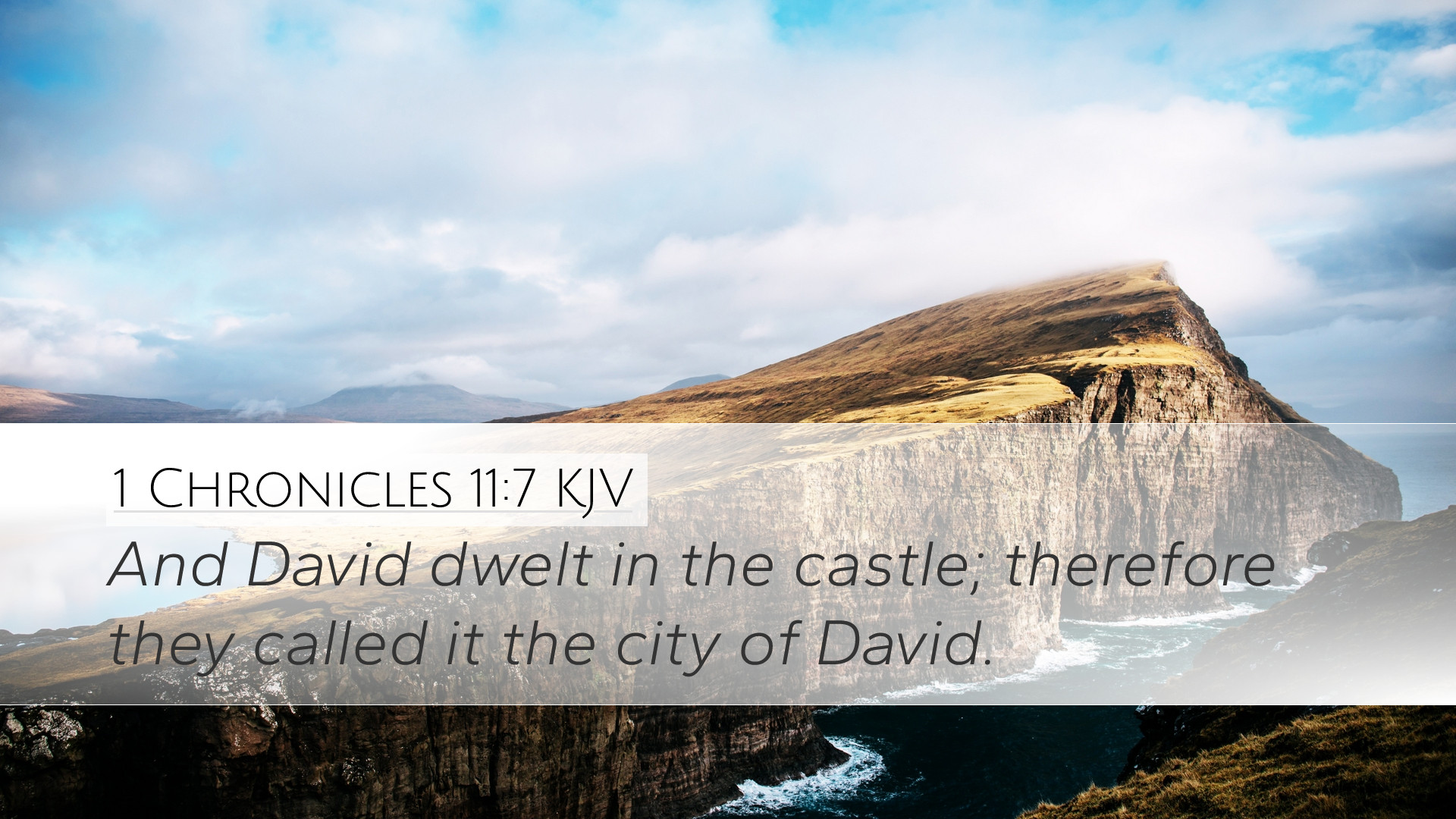Analysis and Commentary on 1 Chronicles 11:7
Verse: "And David dwelt in the fort, and called it the city of David. And David built round about from Millo and inward."
Contextual Overview
The first book of Chronicles revisits the early days of David's reign, focusing particularly on his establishment of Jerusalem as the political and spiritual center of Israel. This verse marks a significant moment in David's ascendance to kingship, illustrating both his strategic military acumen and his religious aspirations.
Historical Background
David, prior to his establishment in Jerusalem, was a fugitive and leader of a band of outlaws. The fort mentioned in this verse reflects a critical tactical position that allowed him to consolidate power and transition from the renegade state to recognized monarch. By building around Millo, David fortified the city, significantly enhancing its defenses and his own authority.
Theological Insights
This verse offers rich theological reflections on God's providence and the fulfillment of divine promises. David’s kingship and the ultimate establishment of Jerusalem foretells the coming of Christ, the true King who would reign eternally. David’s act of fortification can also parallel God’s establishment of His covenant with Israel, symbolizing security and divine presence.
Commentary Excerpts
Matthew Henry's Commentary
Henry emphasizes that David's taking of the city played a pivotal role in his kingly duties. By calling it the "city of David," he instilled a sense of identity and unity among his people. This act not only signified a physical stronghold but also represented the spiritual authority he would exert as king. Furthermore, Henry points out that the name carries a sense of permanence and divine favor.
Albert Barnes' Notes
Barnes provides details about the “fort” which David refers to, likely the Jebusite stronghold. His victory here was a testament to God’s choice in David as king. Barnes articulates that David's establishment of the city illustrated the shift from tribalism to a centralized political entity, serving as a precursor to the future kingdom of God. The building from 'Millo inward' indicates an ongoing development of both infrastructure and faith.
Adam Clarke's Commentary
Clarke offers a linguistic examination of the terms used. His insight into the Hebrew text emphasizes that "Millo" connotes a meaning of "a filling" or fortification which signifies building up not just physically but socially among the tribes of Israel as well. Clarke discusses the implications of David's leadership style which was characterized by unity and resilience in the pursuit of the God's plan for Israel.
Practical Applications
This verse presents numerous applications for modern readers, especially those in pastoral roles or theological study. It teaches about the importance of leadership and communal identity within the faith context. The act of building fortifications can serve as a metaphor for spiritual preparation and the importance of establishing a strong foundation in Christ.
- Understanding the balance between leadership and communal identity in the church today.
- The significance of strategic planning in church growth, mirroring David's fortification of Jerusalem.
- The deeper implications of calling a place sacred and forming communal identity around it.
Conclusion
In 1 Chronicles 11:7, we witness a pivotal moment in the history of Israel under David's reign. By combining insights from Matthew Henry, Albert Barnes, and Adam Clarke, we understand this verse as not simply a narrative transition but a profound illustration of God's hand in establishing a people and place for His name. The implications resonate through millennia, transcending the initial historical context and guiding future generations in their spiritual walks.


